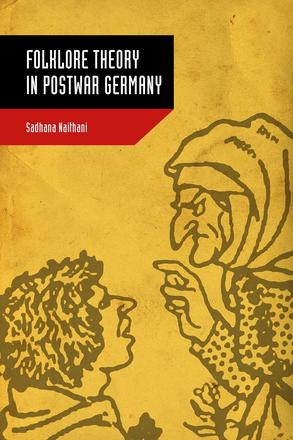
Folklore Theory in Postwar Germany
A study of Lutz Röhrich, the key folklorist who redeemed and contextualized German folklore after horrific misuses by the Nazis
Description
Can the study of folklore survive brutal wars and nationalized misappropriations? Does folklore make sense in an age of fearsome technology? These are two of several questions this book addresses with specific and profound reference to the history of folklore studies in Germany. There in the early nineteenth century in the ideological context of romantic nationalism, the works of the Brothers Grimm pioneered the discipline. The sublimation of folklore studies with the nation's political history reached a peak in the 1930s under the Nazi regime. This book takes a full look at what happened to folklore after the end of World War II and the defeat of the Nazis. A special focus on Lutz Röhrich (1923-2006), whose work spans the decades from 1955 to 2006, makes this book a unique window into a monumental reclamation.
In 1945 Röhrich returned from the warfront at the age of twenty-three, a wounded amputee. Resuming his education, he published his seminal Märchen und Wirklichkeit (Folktale and Reality) in 1956. Naithani argues that through this and a huge body of scholarship on folktale, folksong, proverbs, and riddles over the next decades, Röhrich transformed folklore scholarship by critically challenging the legacies of Romanticism and Nazism in German folklore work. Sadhana Naithani's book is the first full-length treatment of this extraordinary German scholar written in English.
Reviews
Scholars and students of folklore will be deeply indebted to Sadhana Naithani for this compelling study of German folklorist Lutz Röhrich. Naithani not only demonstrates Röhrich's role in the transformation of folklore studies in postwar Germany, she also argues convincingly that Röhrich's illuminating ideas and rigorous methodology--especially in the study of folktales and folksongs--can benefit contemporary folklorists around the world. After reading this book, anyone interested in folklore will want to put Lutz Röhrich at the top of their reading (or re-reading) list.
- Donald Haase, professor of German and senior associate dean in the College of Liberal Arts and Sciences at Wayne State University and editor of The Greenwood Encyclopedia of Folktales and Fairy Tales
Sadhana Naithani's fascinating study is a major contribution to our understanding of how the study of German folklore has undergone profound changes since the nineteenth century. She explains in great detail how the original notions of 'folk' and 'folklore' conceived by Herder and the Brothers Grimm as representing the culture of ordinary people were politically manipulated by Nazi propaganda in the 1930s and how the study of folklore had become tarnished at the end of World War II. By focusing on the significant folklore studies of Lutz Röhrich and other young German folklorists since the 1950s, however, Naithani demonstrates that there has been an important re-invigoration of the field through original interdisciplinary work. Thanks to scholars like Röhrich, the study of folklore has regained its stature in unified Germany.
- Jack Zipes, professor emeritus, University of Minnesota, and author of The Irresistible Fairy Tale